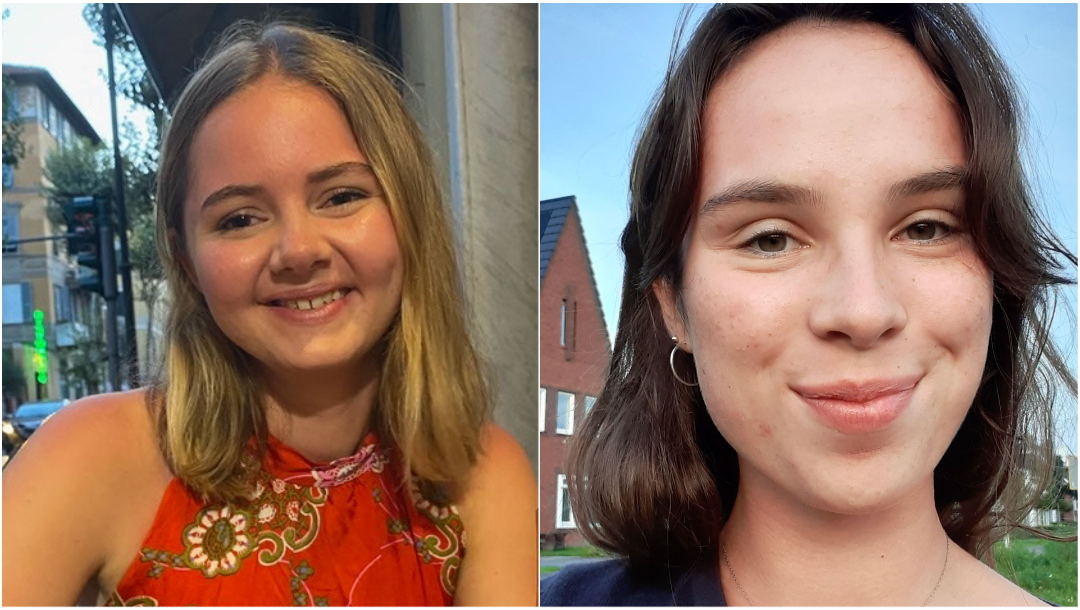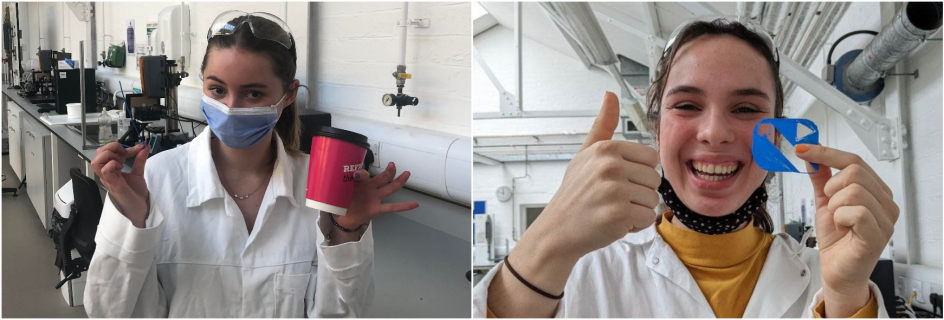Post date:
Anne-Marie Thulstrup from Paris and Iris Picquart from Barcelona are both studying chemical engineering and are part of Precious Plastics – a student-run initiative to reduce waste plastic on campus.
We interviewed Anne-Marie and Iris to learn what their project is about, why they want to create a circular economy at the University, and how others can get involved.
What is Precious Plastics, and why did you get involved?
Anne-Marie: Nowadays, climate change has become even more a challenge. That’s why 15 engineering students are trying to tackle this challenge at a local level by reducing plastic waste within the University of Edinburgh and to make some changes on campus by creating a circular economy.
Precious Plastics is part of the sustainable engineering student society Engineering for Change, and is a project which aims to recycle disposable coffee cups lids in cafes on campus into useful objects for students.
Iris: We came up with a process to recycle coffee cup lids – which we first collect and clean – into a filament that can then be fed into a 3D printer, and used to create objects that students need such as USB sticks, coasters – even earrings!
I got involved in Precious Plastics as I was eager to start putting the knowledge I have gained in my degree into practice. I am also passionate about making a difference, even if it is here, at a small scale.

What role do you think engineers have to play in creating a more sustainable future for our planet?
Iris: One of the reasons I wanted to be a chemical engineer in the first place is because I realised, quite early on, that they are responsible for most of the biggest contributors to the environmental problem.
They are, for example, the ones that created plastic, the ones that are refining oil and the ones that produce ammonia. Therefore, I strongly believe that they are part of the solution. Finding alternative fuels, carbon capture and why not, plastic recycling.
Anne-Marie: Engineers have the ability to use their knowledge to make a better and more sustainable world for us and for the next generation.
Global warming is one of the biggest challenges of this decade and it can be solved by creating a more sustainable world. Each engineer can approach it in so many ways by innovating and changing current industries from manufacturing to energy.
Sustainable manufacturing, decarbonisation, energy transition are all making a huge impact in each sector.
What are your goals or ambitions for the future – do you know what you’d like to do with your engineering degree?
Anne-Marie: Being part of Precious Plastics, I realised how passionate I am about sustainability and the environment. That’s why, in the future, I see myself working in the energy transition and renewable energies.
I believe there is a lot of space for innovation. Working in world-leading companies will be an incredible opportunity to take part in the development of greener energies such as blue hydrogen.
Iris: In the future, I definitely want to work in the renewable energy sector or sustainable manufacturing or even carbon capture.
I do believe, somehow, my career as an engineer is going to be working hard to achieve all the goals set, for example, by climate summits such as Net Zero 2050.
How can others contribute or get involved?
Iris: This project currently involves 15 engineering students but we are open to anyone interested in sustainable manufacturing and the circular economy.
You can get involved by recycling your coffee cup lids in our bin in the Hudson Bear Eng Inn - we also encourage students and staff to waste less and reuse more before recycling, when possible!
Anne-Marie: You can also purchase the recycled items we make next year. They will be available in shops around campus.
Keep updated with the launch on Engineering for Change Edinburgh’s social media channels on Instagram and LinkedIn!



